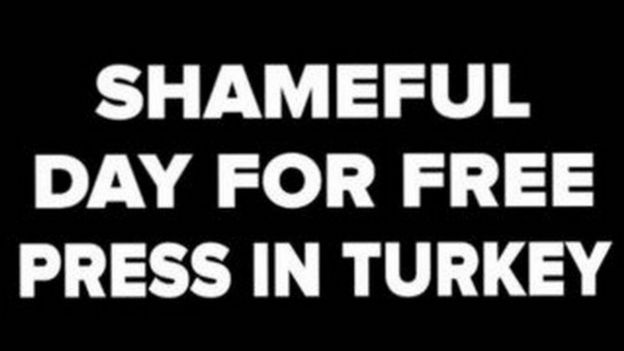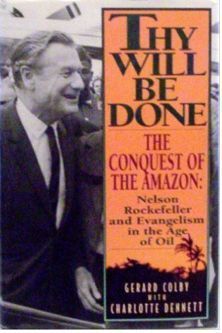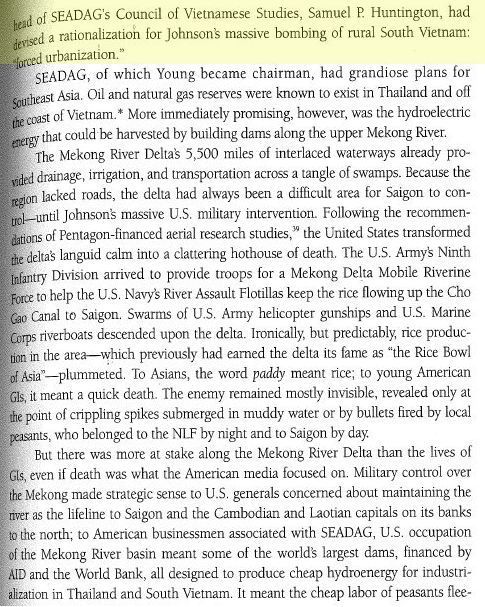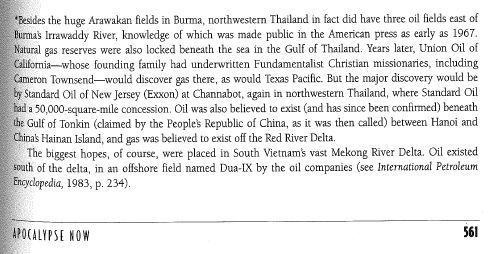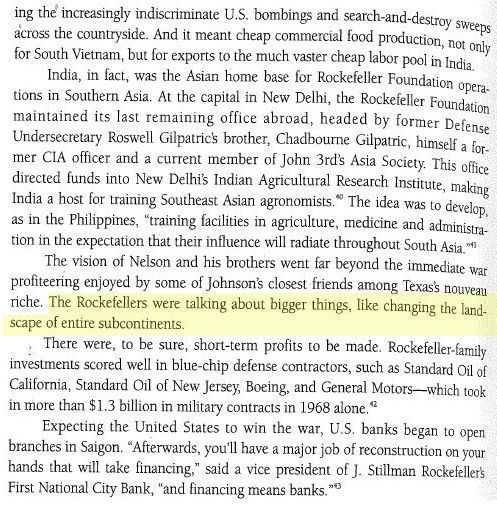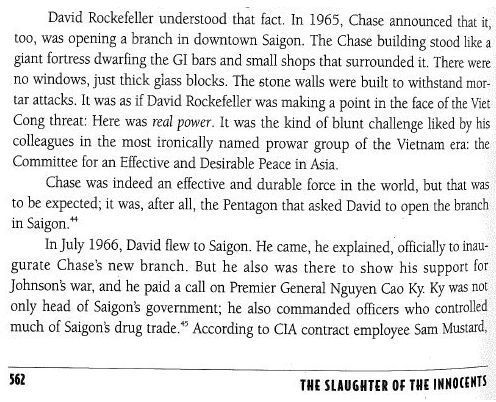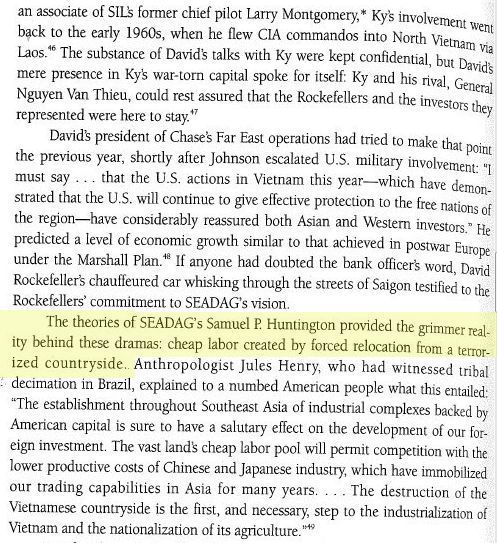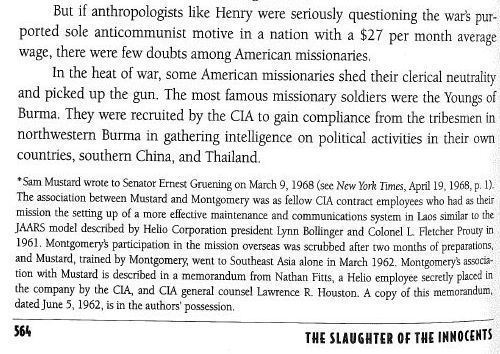On the Question of ImperialismCoercive Engineered Migration: Zionism's War on Europe (Part 9 of an 11 Part Series)
by Gearóid Ó Colmáin / March 6th, 2016
Is Russia Imperialist?
There is much confusion as to the nature of imperialism. Many analysts contend that there is only one form of imperialism in the world today, namely NATO and that countries such as Russia and China are the leaders of a global anti-imperialist front, resisting domination by the Western corporate elite. However, such as theory does not stand up to scrutiny. In his book Imperialism: the Highest Stage of Capitalism, Vladimir Lenin defined imperialism as monopoly capitalism. He writes:
If it were necessary to give the briefest possible definition of imperialism we should have to say that imperialism is the monopoly stage of capitalism. Such a definition would include what is most important, for, on the one hand, finance capital is the bank capital of a few very big monopolist banks, merged with the capital of the monopolist associations of industrialists; and, on the other hand, the division of the world is the transition from a colonial policy which has extended without hindrance to territories unseized by any capitalist power, to a colonial policy of monopolist possession of the territory of the world, which has been completely divided up.
Both Russia and China are dominated by monopoly capitalist and state-monopoly capitalist enterprises. In Russia, state-monopoly capitalism has been a reality since the Khrushchev reforms of 1957, which changed the Soviet Union’s economy from socialist to a state-capitalist mode of production, while China, from the days of Mao’s ‘New Democracy’ to Xi Jinping today, has always pursued varying forms of state-monopoly capitalism.
As the foreign relations of Russia and China are based on protecting the interests of their respective monopoly enterprises; their foreign relations are strictu sensu imperialist. This is a far cry from the Soviet Union from 1917 to 1953, when proletarian internationalism constituted the basis of Soviet foreign policy. This is the only period in modern history when Russian foreign policy has been anti-imperialist. For example, when Enver Hoxha, First Secretary of Albania’s Party of Labour, visited Josef Stalin in Moscow in 1946, the Soviet leader offered to supply Albania with all the necessary materials and expertise for its rapid industrialization. Stalin emphasized the importance for Albania of developing heavy industry so as to create the means of production necessary for economic self-sufficiency. Here credit and loans did not even enter the equation. All this changed when Nikita Khrushchev took over. Instead of encouraging socialist countries to industrialise and become self-sufficient, Khrushchev’s policy was to capture markets for Soviet exports. When the Albanians objected to this policy the Khrushchevites threatened and harassed the Albanian government. Hoxha writes:
There was something wrong, there was no longer that former atmosphere, when we would go to Stalin and open our hearts to him without hesitation and he would listen and speak to us just as frankly from his heart, the heart of an internationalist communist. More and more each day, in his successors, instead of communists, we saw hucksters.
The new Soviet capitalist foreign policy was also criticised by Che Guevara, who complained that the Khushchevite ‘hucksters’ were more interested in selling arms for a profit than voluntarily supplying arms on the basis of proletarian internationalism. That is why Hoxha correctly described the USSR in this period as ‘social imperialist’; that is to say, state-monopoly capitalism or imperialism disguised as socialism. During the 1960s the revisionist USSR shamelessly delivered weapons to the fascist military regime in Indonesia while they murdered all those associated with Indonesia’s communist party.
Khrushchevite revisionism destroyed the USSR’s economy, a civilisation that was, until Stalin’s death, the hope of workers all over the world. Contrary to popular belief, it was not socialism which collapsed in 1991, but rather Soviet state capitalism, which under the influence of Zionist oligarchs, embraced neoliberalism by destroying all state obstacles to the total exploitation of the workers. Many of the oligarchs who took over the former Soviet territory were former convicts in labour camps, imprisoned for defrauding the soviet System.
The destruction of the USSR was, as Putin has correctly pointed out, the greatest catastrophe of the twentieth century. The violent coup against the Russian parliament in 1993 was led by fascists no different in outlook to the hooligans who took over Kiev in 2014. Russian economist Sergei Glayev, in his book Genocide: Russia and the New World Order eloquently describes the ideology of the Yeltsinites:
The subjective disposition of the ideologues of the contemporary revolution in Russia, strongly recalls, in the hatred and contempt for the people of their own country, Hitler’s propaganda or Trotskyite agitation. (Genocide: Russia and the New World Order, p 6).
Under Yeltsin’s dictatorship Russia lost millions of its people due to economic hardship, a silent and hidden genocide. Sergei Glayev writes:
The total excess of the number of deaths over the number of births in the 1992-1997 period is estimated at 3,890,000 persons. At the same time, Russia’s overall demographic losses for those years, as a consequence of the deterioration of the social and economic situation and the destruction of a normal cultural and daily life environment, are estimated at 8 million people, of which approximately 3 million died prematurely and 5 million were not born, due to the sharp decline of childbearing.
Glayev refers to the racist ‘Talmudic ideology’ of Russia’s post Soviet ruling elite, who ruled as ‘chosen ones’ for whom ordinary Russians were considered subhuman, ‘white slaves’.
It is out of this nightmare that Russian president Vladimir Putin arose.
Putin is a creature of Gorbachev’s USSR, which is why the former USSR leader whom communists want to prosecute for high treason, supports the current Russian incumbent.
Putin is on record stating that he supported Mikhail Gorbachev during the coup against the latter in 1991. The coup was an attempt to save the Soviet Union whose loss Putin would subsequently lament.
In a recent interview, Putin referred to Nikita Khruschchev as a “great leader” who made the world respect Russia. This is not an opinion shared by communists in the former Soviet Union. In his book, Khrushchev and the Destruction of the USSR, Mikhail Kilev, shows that in order to restore capitalism in the USSR, Khrushchev lied about Stalin, blaming him for many of the crimes he and his cronies had committed. Khrushchev’s anti-communist policies were a disaster for the USSR, plunging the economy into deep crisis, enabling a caste of corrupt apparatchiks to come to power, demoralising the workers and creating the conditions for total counter-revolution under the neo-liberal regime of Yeltsin. The lies and crimes of Nikita Khrushchev are also well documented by Grover Furr in his book Khrushchev Lied: The Evidence That Every “Revelation” of Stalin’s (and Beria’s) Crimes in Nikita Khrushchev’s Infamous “Secret Speech” to the 20th Party Congress of the Communist Party of the Soviet Union on February 25, 1956, is Provably False.
Putin is wrong. Nikita Krushchev was not a great leader. On the contrary, he was among the greatest villians of Modern Russian history and Putin shows disrespect for the Russian people in referring to such a vile traitor of Russian and Soviet workers.
Since taking power, Putin has many notable achievements under his belt. He has restored the economy, protected the country’s unity against NATO proxy war in Chechnya and has imprisoned or expelled some of the most notorious Zionist oligarchs from the country such as Vladimir Guzinsky and Mikhail Khodorskovsky. Putin’s leadership has seen the emergence of a national, patriotic bourgeoisie. This protection of national interests has led to confrontation with NATO, who are openly conspiring to dismember the Russian Federation. However, labour conditions in Putin’s Russia remain appalling with average life expectancy of Russian males at 56 years. The average standard of living and industrial output still lags far behind the Soviet Union.
The Russian people are still living under a brutal class dictatorship and the thousands of Russians who demonstrate every year with portraits of Lenin and Stalin are proof that class-conscious Russians do not believe the bourgeois state’s official anti-communist propaganda. Many of those demonstrators remember better times when proletarian democracy triumphed over bourgeois exploitation. To suggest therefore, that Putin is at the head of an ‘anti-imperialist’ alliance is fantasy. The Russian imperial state is, however, observing the rules and protocols of international diplomacy and is thus the guarantor of the security of client-states such as Syria. This is in stark contrast to the lawlessness, anarchy and genocide being spread by the United States. Russia is, therefore, playing a defensive role and should be commended for its observance of international law.
Is China Imperialist?
China is also an emerging empire. In the first decade after the liberation of the country by the communists, China gained important technology transfers from the USSR. However, with the rise of Soviet Revisionism, that transfer stopped. But China had sufficient means by then to industrialise on its own, with concentration on heavy industry, thus enabling China to become an independent industrial power. Although Mao claimed to uphold the principles of Marxism-Leninism, his policies show that he favoured an alliance of the progressive bourgeoisie with the peasants and workers. Mao’s decentralised, commune-based, class alliance referred to as ‘New Democracy’, was far closer to his predecessor Sun Yat-sen, than Marxism-Leninism, whose principles require the dictatorship of the proletariat and the poor peasantry over all classes. As Bill Bland shows in his book The Class Struggle in China Mao Zedong represented the comprador bourgeois faction in the Communist Party while Kao Kang, who was sidelined and later possibly murdered, advocated proletarian dictatorship.
Mao’s opening up to the USA in 1972 accelerated the super-exploitation of the Chinese proletariat. Mao’s revisionist government had no hesitation in maintaining diplomatic relations with the fascist Pinochet regime in Chile. The Chinese social imperialists also bear some responsibility for the rise of Al Qaida in Afghanistan, as they sold arms to the Mujahedeen during the 1980s. However, in China’s case, Islamist terrorism in the Xinjiang province is more a case of blowback than Islamist terrorism in the West, which is predominantly false-flag. In other words the Chinese People’s Liberation Army is genuinely fighting Islamist terrorism in Xinjiang province.
Although China’s presence in Africa as a competitor with US imperialism is enabling important industrial development, China’s interest in Africa is purely commercial and is based in exploiting resources and labour for the benefit of state-monopoly capitalism. It is therefore ludicrous to describe China as ‘anti-imperialist’. As a competing empire in Africa offering better contracts and a policy of non-interference, China offers Africa’s national bourgeoisies the opportunity to escape from the clutches of European and American neo-colonialism by becoming client states of Chinese imperialism. While such as move is progressive, it does not remove the problem of imperialism.
Is Iran imperialist?
As for the other actors in the Syrian conflict, a few comments need to be made about the role the Islamic Republic of Iran and Hezbollah. It should not be overlooked that Iran and Lebanese Hezbollah collaborated with the United States in supporting Islamist terrorism in Bosnia during the Yugoslav wars in 1992, a policy which subsequently back-fired when the independent Bosnian regime voted for sanctions against Iran in the UN. The Islamic Republic of Iran, whose Khomeinist ideology ostensibly supported the struggles of the poor and the oppressed nations, completely misunderstood the nature of the Balkan conflict, falling for Zionist propaganda about the wars being a Christian plot to oust Muslims from Europe. Bosnian leader Alija Izetbegovic’s delegations to Iran and Libya played on this deception, thereby feeding the notion of a ‘clash of civilisations’ between the Muslim and Christian worlds. The theological and anti-Marxist postulates of the Islamic Republic of Iran made it a prime target of this Zionist ideological obfuscation.
In 2011, in spite of the obvious Zionist role in the Arab Spring, Tehran gave its full support to the uprisings in North Africa. During the Zionist bombing of Libya, Iranian state-media agencies continued to refer to the Islamist terrorists as ‘revolutionaries’. Lebanon’s militia Hezbollah also cheered on the Al Qaida terrorists in Libya. In fact, the Chinese and Russian UN Security Council abstentions, together with Iranian and Hezbollah support for the terrorists, meant that Libya had to face the full force of world Zionism on its own for over eight months. Many see Lebanese Hezbollah as an ‘anti-imperialist’ and ‘anti-Zionist’ organisation. While they are certainly playing an important role in the liberation of Syria from Zionist-Wahhabite aggression and have defended Lebanon from Israeli occupation and bombing, their role during the Arab Spring in 2011 needs to be highlighted here.
In a televised speech on March 19th, 2011, Hezbollah’s leader Sayed Hassan Nasrallah praised the Arab uprisings in North Africa and the Arabian peninsula and stated that any suggestion that the uprisings were backed by the United States was incorrect and unjust. He justified this interpretation on the basis of fact that all the toppled regimes had been collaborators with the United States. Nasrallah had fallen for Zionism’s great deception, for we have proven since 2011 that the Arab Spring was a well thought-out, well executed geostrategic project to design a New Middle East in accordance with Israeli hegemony.
Nasrallah was wrong to suggest that the North African regimes were total collaborators with US imperialism. There were grave differences between Mubarak and the United States concerning the war on Iraq, the partition of Sudan and the war on terrorism. Ben Ali of Tunisia had also repeatedly criticised US double standards in dealing with the Middle East. As for Muammar Gaddafi, his entire pan-Africanist project was a major threat to US imperial interests. Nasrallah did much to sell the Arab Spring to his audience, even quoting the lies diffused by the Western corporate press for emphasis. It is difficult to believe he could have fallen for such risible nonsense. The fact that Nasrallah did not investigate Zionism’s role in these uprisings and that he watched the slaughter of Libya and celebrated the brutal murder of Gaddafi should not be forgotten in our assessment of his ‘anti-imperialism’.
While the Islamic Republic of Iran is not yet a major world empire, it is an emerging capitalist power pursuing a foreign policy according to its strategic and ideological interests. In this sense, Iranian capitalism does qualify for the status of emerging empire. However, Iran and Hezbollah are currently playing a highly constructive role in defending the Syrian Arab Republic, while Iran’s new and expanding foreign language media outlets provide space for more inclusive and truthful debate in the West.
Conclusion
The people of Russia, China and Iran have every reason to blame their own governments for allowing the 2011 crisis in Libya to escalate. Had those countries backed Gadaffi, the Syrian terrorists would have been denied a major base of operations against Damascus, thus also making Russia, China and Iran more secure. In fact, the abstention of Russia and China and Iran’s support for the counter-revolution in Libya could be described as acts of unpardonable diplomatic stupidity or worse still, acts of high treason, given the fact that all three emerging powers are facing Al Qaida insurgencies inside their own borders.
The emergence of Russia, China and Iran as global powers is a positive development insofar as it curbs the drive of NATO for total, unipolar, global domination. But none of these powers can seriously claim to be ‘anti-imperialist’.
